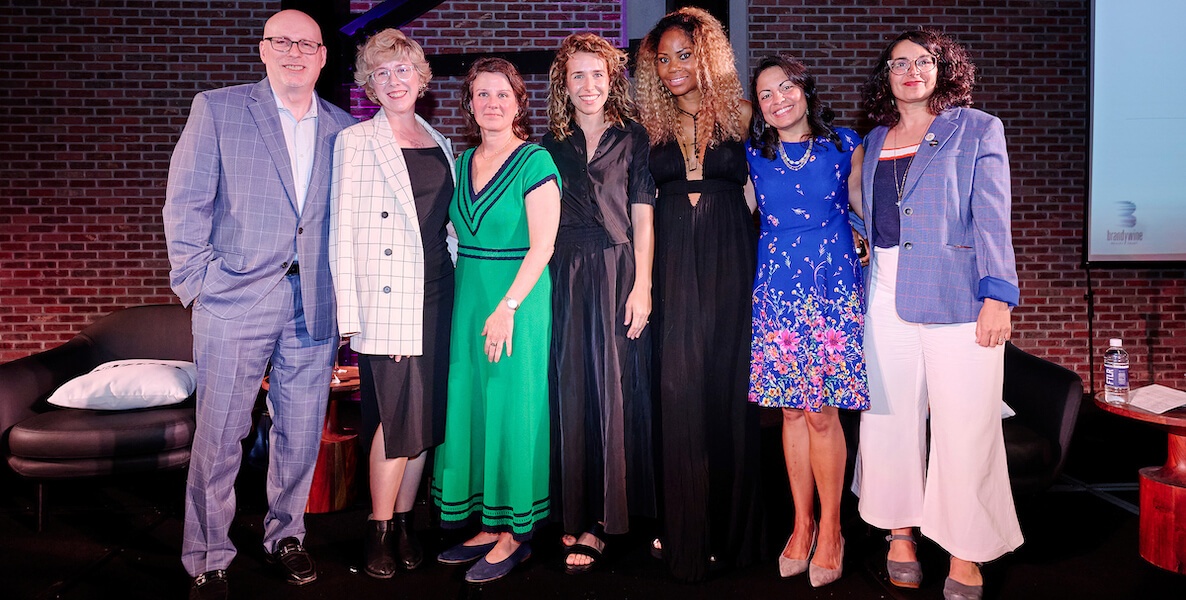For years, city design, city planning, even universal city design, has been about outcomes. Does an end-use public space successfully combine form and function, accessibility and beauty? Does a finished park accommodate visitors with children, visitors who use wheelchairs, folks seeking peaceful communion with nature and others seeking community celebration?
When The Citizen gathered five women leaders in Philadelphia’s development and construction industry on Tuesday, June 18, an audience of about 100 learned it’s not just what you get when it comes to creating thriving physical spaces within a city — it’s how you get there.
“Women in our cities have been second class citizens for so long. What this really is about is doing things differently, because the way it’s been done so far is not working,” said Katrina Johnston-Zimmerman, an urban anthropologist at Drexel University, founder of THINK.urban and the evening’s moderator. “This is the start. This is the way to flip the script. This is the way to bring care to the conversation and to make sure cities actually work for everyone.”
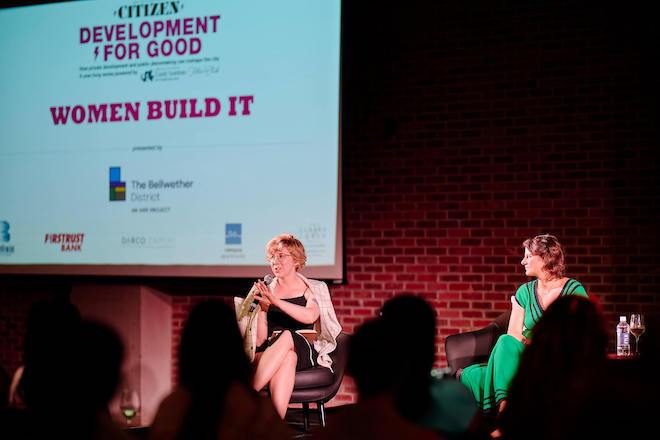
Women working differently
Take the Bok building in South Philadelphia. Ten years ago Lindsay Scannapieco and her team at Scout were just beginning to turn a shuttered, Art Deco vo tech school into the thriving, diverse space for manufacturing, working, art-making, dining, drinking, working out, dog- and child-caring that it is today. And they did something unheard of.
“We would hand out cups of coffee and talk to people. We put a sign out, and said, ‘If you have questions, come in and talk to us.’ Our neighbors realized we were humans trying to do something with a big old building,” said Scannapieco, “I can’t think of any male developers that I’ve interacted with that way … We were meeting people where they were at.”
Scannapieco was one of three panelists who talked about the importance of better gender representation in the construction and development industries, what can be done about it, and what it will change.
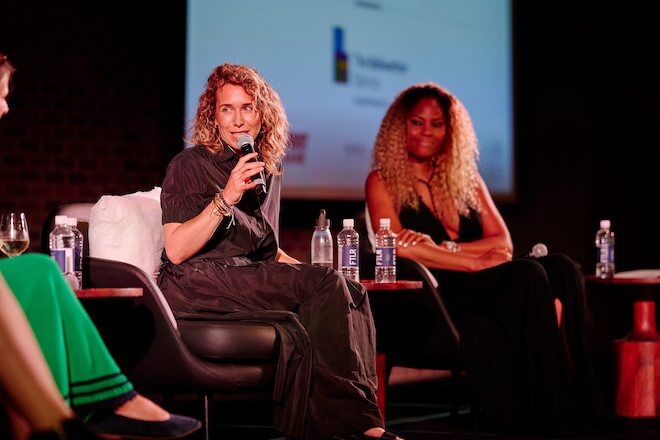
Monica Miraglilo, a self-taught contractor and interior designer-turned real estate developer and founder of GirlBuild, which holds workshops that teach women how to manage home rehab projects, noted women are “only 15 percent” of her industry. Miraglilo believes in entering every space with confidence and openness.
Andreina Perez Hein, executive director of Everybody Builds works to diversify the even less inclusive building trades. As of last year, women made up only 10.8 percent of construction workers. As a Latina who came to the industry with a background in nonprofit work, she used her newcomerness as an advantage: “Not being jaded allows you to see things differently and approach them in a different way,” she said.
Melissa Schrock, executive VP of mixed use development at HRP, where one of her projects is the Bellwether District, came to her role with a background in architecture and a mission to combat climate change through smarter, gentler city development. Although she’s charged with building new communities, as a woman, she feels better equipped to seek out “alignment of interests” between new and existing neighborhoods, creating both cohesion and mutual benefit. “Women are far more adept at that,” she said, “We’re also far more organized.”
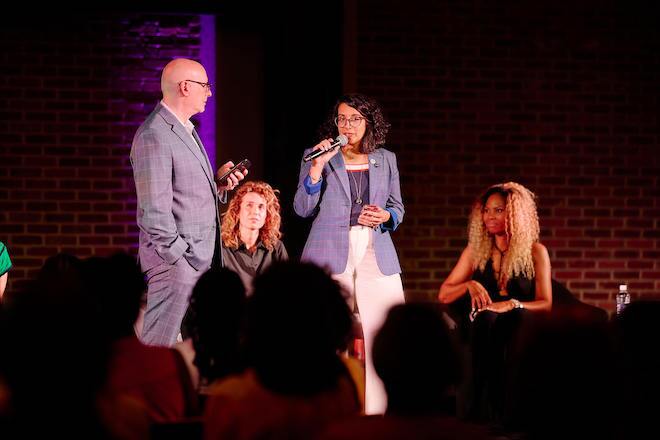
Design solutions for Philadelphia
The panel told their individual stories of breaking into the industries, offered advice on getting by and moving up. They also offered their prescriptions for Philadelphia:
-
- Establish incentives to fill vacant buildings, especially homes and abandoned spaces, by levying taxes on their owners.
- Think outside the box to reuse empty office spaces, and not just as residential retrofits.
- Establish more trade schools, places where young people can learn to rehab spaces and proudly claim them as their own.
- Support the arts: With the sudden closure of UArts and partial closure of PAFA, we must protect our cultural producers and keep them in Philly. They are the reason we’re all here.
- Remove obstacles for women in construction. Childcare, jobsite etiquette, and long paycycles have historically prevented women from entering the industry.
- Find opportunity in crisis. If Philly can figure out how to creatively recover from the pandemic by reimagining what a city can be, we will, in Schrock’s words, “be poised to eat the lunch of other American cities.”
Development…for Good is a project in partnership with Drexel University’s Lindy Institute for Urban Innovation and Fitler Club, and sponsored by The Bellwether District — an HRP Project; Brandywine Realty Trust; Campus Apartments; Darco Capital; Clarke & Cohen Property Loss COnsultants; and Firstrust Bank.
Below, check out photos and a video from Development … for Good: Women Build It.
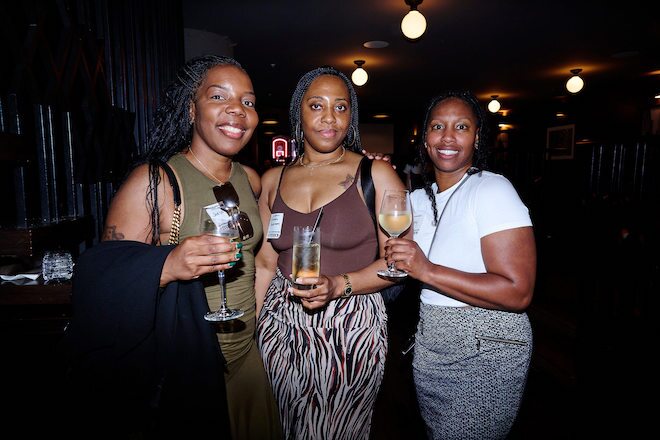
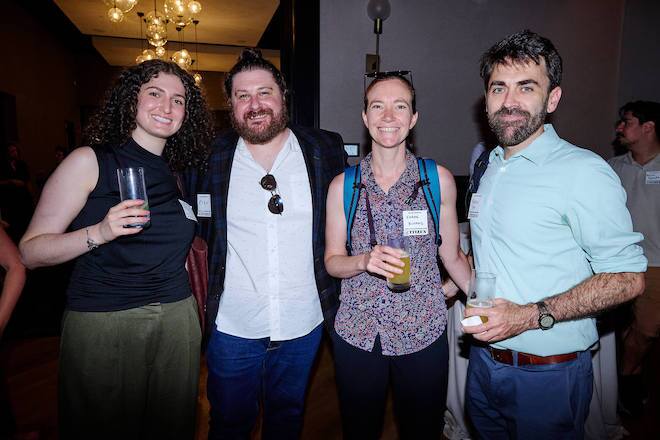
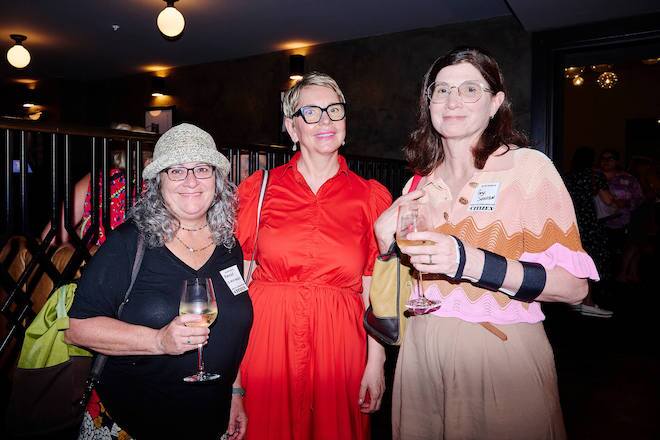
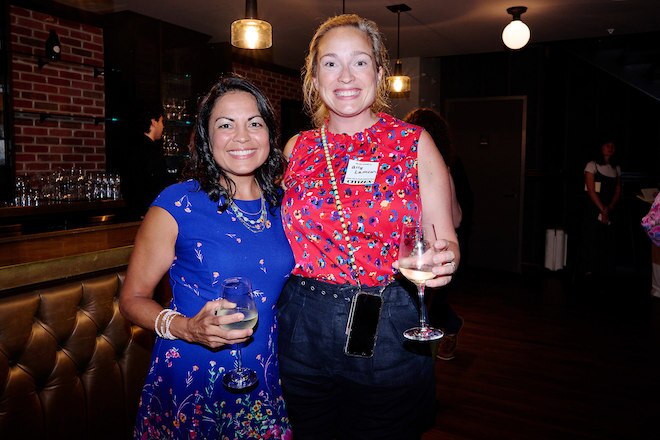
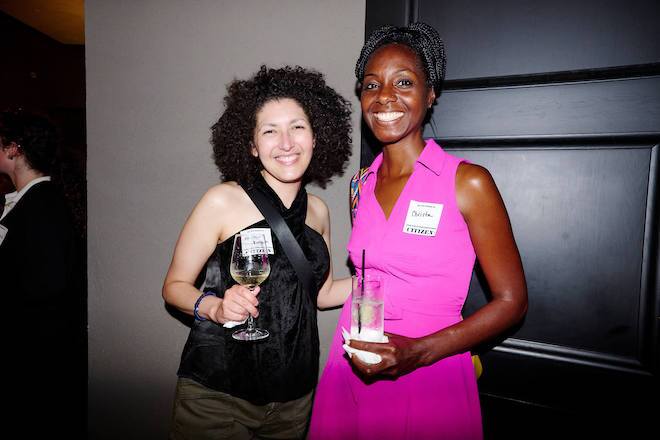
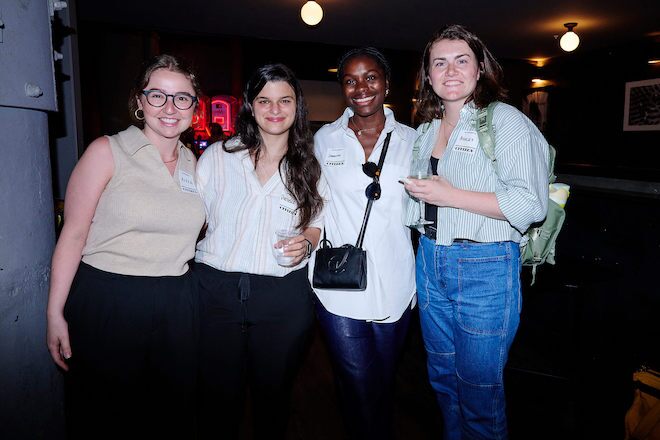
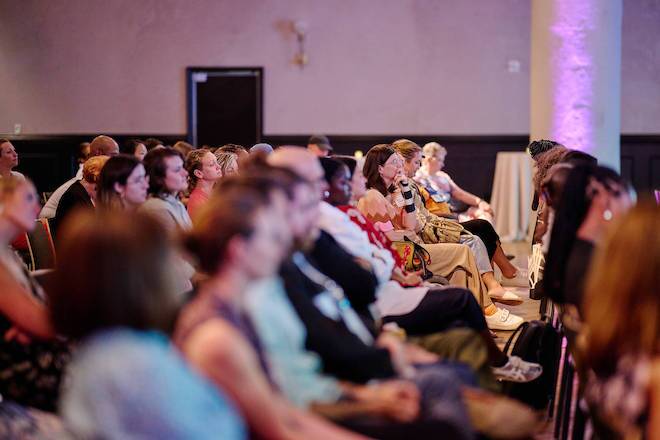
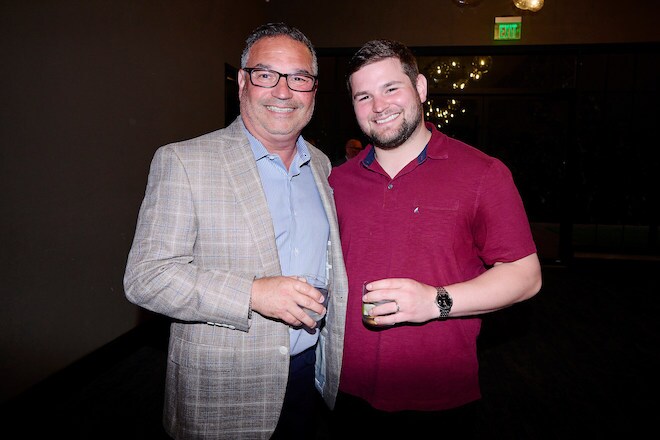
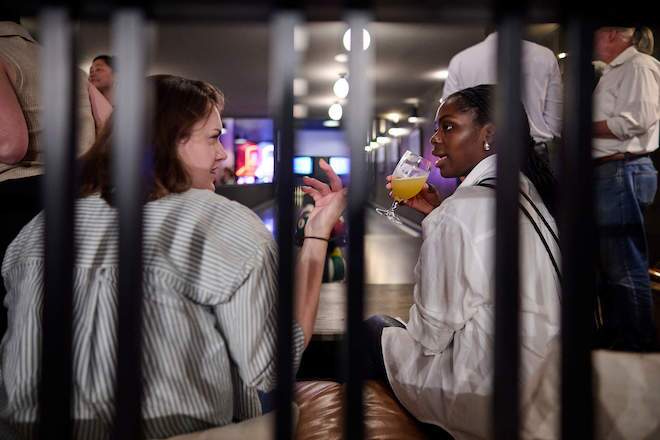
Thank you to our generous Development … for Good sponsors:

![]() MORE DEVELOPMENT FOR GOOD FROM THE CITIZEN
MORE DEVELOPMENT FOR GOOD FROM THE CITIZEN



